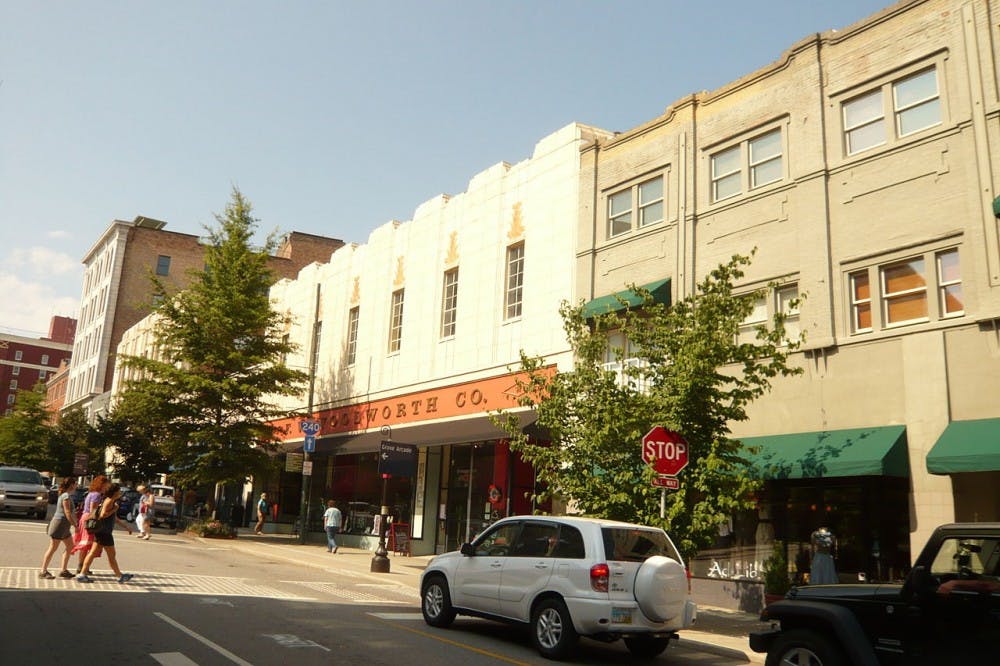
When presenting a problem or flaw in a system, it is expected that you also provide a solution to fix it. Talking about a problem without saying what can be done is taken as unhelpful complaining, as if you don’t really want to fix the problem — you’re just looking for something to be mad at or something to blame.
So when I talk about the shortcomings of the University’s low-income student infrastructure, the general response is, “Well, what do you think they should do?”
The reason I have trouble with this question is not due to a lack of ideas. If I talked as if the world just listened to me, I could solve world hunger, poverty and end war forever. Like any other 19-year-old college student, my ignorance on a subject has nothing to do with the authority I give myself in regard to it.
Rather, I struggle with why I should be promoting this change in the first place. Why do I deem my cause so much more worthy than all the other causes? There’s only so much money available to be spent on students, so whatever funding is allocated to low-income opportunities would have to be taken away from others' opportunities.
One opportunity gained is another one lost. I’d love to see the University provide enough financial aid for me to enroll in summer classes, but I could never ask for that if it came at the cost of my friends’ research opportunities.
My roommate just created a startup at the new Hatchery. It could single-handedly launch him into a wildly successful career in biotechnology, but if there was more money set aside for low-income students like myself to, say, study abroad, maybe the University wouldn’t have been able to find the funding for the Hatchery. The opportunity of his lifetime would be stolen from him, by me.
But then, what about the $69,000 a year in financial aid the University spends on me already? This is money it wouldn’t have to spend if it had accepted a high-income student instead of me. This is tens of thousands of dollars it would be allowed to spend on any number of opportunities for students.
Spread out, that money could make a much larger difference than when it’s spent on one person. That $69,000 could change multiple people’s lives if it weren’t spent singularly on my basic education experience. It could send students to experiential study semesters, fund them to pursue groundbreaking research or, like my roommate, give them a jumpstart on their dream careers.
Why do I alone deserve this money more than all the other students?
Of course, this reasoning is dangerous. The fact that Hopkins did choose me creates a responsibility for them to provide me the same opportunity as any other student.
By choosing me, they showed that they believed in my worth just as much as any other here — they showed me that I do in fact belong. If the University I am working my heart out for says I belong here, then I must belong.
I can accept this, but that doesn’t automatically erase the sense that I am mooching off of those around me. Whether I accept it as legitimate or not, there is the idea that my friends and loved ones at Hopkins would be better off without my attendance. I don’t mean to say that they would be better without my existence or our friendship, but rather that my attendance at Hopkins is directly contributing to a decrease in the quality of their education, however minute.
Without my (and numerous similar students’) financial burden on the University, the resources that my classmates could tap into would be so much greater. I will always have the guilt of the selfishness of taking at the expense the rest of the student body.
The only thing I can do in my four years to combat this is prove that I provide something equally as valuable as research, startup funding, career learning and so on. The story that I bring is not something that can come through funding. I may be a cisgender, white male, but I also come from a low-income, single parent household from Appalachia, the most geographically underrepresented region in universities across the country. The city I live near is one of the modern day hippie capitals, while the high school I went to in my satellite town was investigated by the FBI, twice, for the racially charged conflicts.
Each low-income student comes to Hopkins with an equally unique story, and this is something more valuable than whatever can be created out of a little more funding for its programs.





